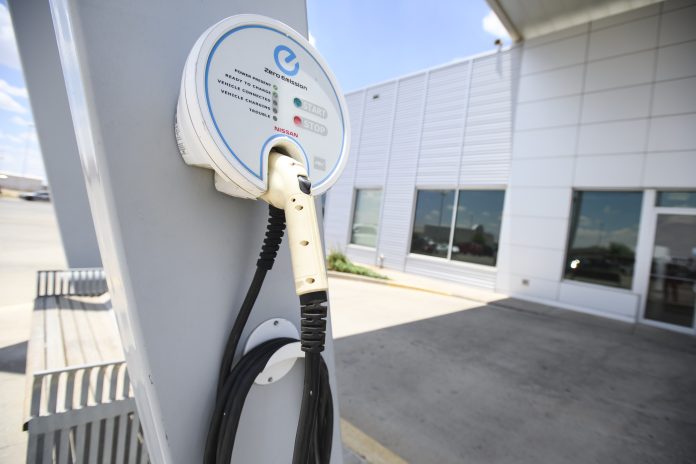They’re running a ways behind electrically powered cars and pickups, but electric trucks are already on the market and industry observers are saying it won’t be long till they become a significant part of America’s truck traffic.
Waco economist Ray Perryman and Odessa trucking company executive Mike Wahl say electrically powered trucks are coming, but it is a complex scenario.
Perryman said Freightliner is marketing an 18-wheeler and a smaller box truck and other manufacturers like Tesla are promising to join the action soon.
“Battery technology is advancing and, with it, range and cost efficiency,” Perryman said. “In fact, we worked with a firm developing a zero emissions technology more than a decade ago that is about to launch.
“Having said that, some of the materials needed to produce high-capacity batteries are difficult to obtain in large quantities and disposal remains a significant obstacle.”
Freightliner is touting its 470-horsepower, 82,000-pound eCascadia truck and the smaller eM2, each of which offers a range of 230 miles and an 80-percent recharge in 90 minutes. Depending on how it’s configured, the eCascadia goes for two or three times the price of Freightliner’s regular $139,000 diesel-powered Cascadia and the medium duty eM2 runs $400,000.
Perryman said a trucker or a trucking company views buying truck for an 18-wheel rig differently than a person shopping for a car or a pickup because operational costs must be considered.
“For a logistics firm, until 18-wheelers can be purchased and operated at costs comparable to diesel-powered trucks, it will be difficult to justify purchases for the mainstream buyer operating a significant fleet,” he said. “It will also require the necessary supporting infrastructure.
“While electric vehicles are increasingly common, the challenges with taking them on road trips are widely documented. For logistics firms, until it becomes clear that charging or having to wait for chargers to become available won’t cause excessive and expensive delays, widespread deployment will be curtailed.” However, Perryman said advancing technology will help achieve cost parity “in the next few years” and will accelerate the deployment of big battery-powered trucks.
“I should point out that much of future incremental electricity demand will be met by natural gas facilities, likely with carbon capture, as costs continue to decline,” he said. “The conversion factor from natural gas BTUs to electricity is roughly 45 percent.
“Thus, the emergence of electric trucks as a larger part of the market will likely stimulate the demand for natural gas. We modeled this phenomenon a while back under several scenarios and found it to be beneficial to the oil and gas industry.”
Wahl, operations manager at Trans Pecos Trucking, said electric trucks pose questions like what it would cost to get a mechanic to come fix a breakdown on the road.
Wahl said replacing the battery in an electric car every four or five years costs $40,000 and replacing much bigger ones in trucks would cost even more. “I see lots of problems because it is a big unknown, but I guess I can see where it would work well,” he said.
‘There is sure a big push to go electric. Back when people were moving things with horses and wagons, some thought the combustion engine would never catch on. But with the freight rates we have these days, how could you pay for something like that?”
Wahl said making long hauls to places like Missouri and North Dakota would necessitate recharging much more frequently than refueling with diesel.




